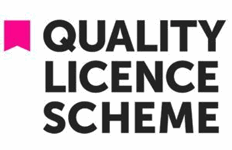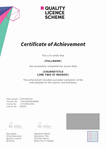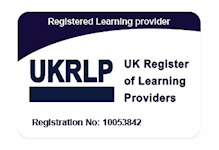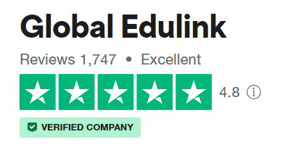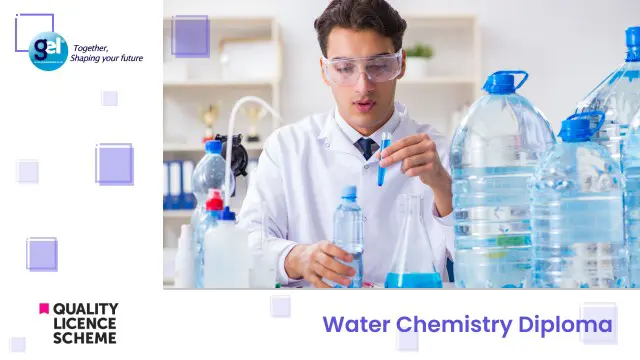
Water Chemistry Diploma
Accredited by The Quality License Scheme | Endorsed Certificate Included | Unlimited Access for 365 Days | Tutor Support
Global Edulink
Summary
- Exam(s) / assessment(s) is included in price
- Tutor is available to students
- TOTUM card available but not included in price What's this?
Overview
Diploma in Water Chemistry at QLS Level 4
This course is endorsed under Quality Licence Scheme.
The Diploma in Water Chemistry at QLS Level 4 introduces learners to the fundamentals of chemistry in its context to the water industry. The purpose of the course is so that individuals can understand advanced theories that involve chemical reactions in the water. The course is designed for individuals often required to understand composition of solutions that occur during water treatment and in the environmental system.
Chlorination is one of the most widely used methods to disinfect water along with coagulation, sedimentation and filtration. This method was identified over a century ago and is still in use today.
The Diploma in Water Chemistry at QLS Level 4 will enable learners to communicate and interpret results in relation to water quality. Learners are introduced to concepts using real-world situations. Engineers in particular will find this course helpful as they often work in situations that require them to perform water analyses and interpret results.
The Quality Licence Scheme, endorses high-quality, non-regulated provision and training programmes. This means that Global Edulink has undergone an external quality check to ensure that the organisation and the courses it offers, meet defined quality criteria. The completion of this course alone does not lead to a regulated qualification* but may be used as evidence of knowledge and skills gained. The Learner Unit Summary may be used as evidence towards Recognition of Prior Learning if you wish to progress your studies in this subject. To this end the learning outcomes of the course have been benchmarked at Level 4 against level descriptors published by Quality Licence Scheme, to indicate the depth of study and level of demand/complexity involved in successful completion by the learner.
This course has been endorsed by the Quality Licence Scheme for its high-quality, non-regulated provision and training programmes. This course is not regulated by Ofqual and is not an accredited qualification. We will be able to advise you on any further recognition, for example progression routes into further and/or higher education. For further information please visit the Learner FAQs on the Quality Licence Scheme website.
Why Choose Global Edulink?
Global Edulink offers the most convenient path to gain skills and training that will give you the opportunity to put into practice your knowledge and expertise in an IT or corporate environment. You can study at your own pace at Global Edulink and you will be provided with all the necessary material, tutorials, qualified course instructor, narrated e-learning modules and free resources which include Free CV writing pack, free career support and course demo to make your learning experience more enriching and rewarding.
Achievement
Course media
Description
COURSE CURRICULUM
Module 01 : Introduction to Water Chemistry
- Basic chemical structure
- Commonly found chemical types
- Principles of modern chemistry
- Understanding the atom
- Chemical compounds
- Common water treatment chemicals
- Substances versus mixtures
Module 02 : Understanding the Molecule
- Phase
- Bonding
- Energy
- Reaction
- Acidity and basicity
- pH section
Module 03 : Alkalinity
- Titration method
- Caustic alkalinity
Module 04 : Hard Water Section
- Occurrence of hard water
- Objections of hard water
- Water softening
Module 05 : Commonly Found Water Chemistry
- Water Quality/Chemistry keywords
Module 06 : Water Treatment Principles
- Understanding water quality parameters
- Solubility of substances in water
- Principles of coagulation
- Coagulation influencing factors
- Common coagulants
Module 07 : Inorganic Chemical Introduction
- Subdivisions of inorganic chemistry
- Bioinorganic compounds
- Transition metal complexes
- Inorganic compound characterization
- Drinking water analysis chart
Module 08 : Chemical Monitoring 1
- Antimony
- Arsine
- Arsenic control measures
Module 09 : Chemical Monitoring 2
- Asbestos
- Barium
- Beryllium
- Cadmium
- Chromium
- Copper
- Cyanide
- Fluoride
Module 10 : Chemical Monitoring 3
- Lead
- Mercury
- Nitrate
- Selenium
- Thallium
Module 11 : SOC Section
Module 12 : Volatile Organic Compounds
- Specific components
Module 13 : Metalloid Section
- Near metalloids
- Health significance of metals In the environment
- Arsenic
- Boron
- Germanium
- Silicon
- Tellurium
Module 14 : Allotropes Section
- Calcium
- Carbon allotropes
Module 15 : Oxygen
Module 16 : Sulfur
Module 17 : Tin
Module 18 : Metals Section
- Properties of metals
Module 19 : Summaries of EPA Arsenic
- Regulations on the disposal of Arsenic residuals from drinking water treatment plants
- Arsenic Removal from drinking water by coagulation/filtration and Lime softening plants
- Arsenic removal from drinking water by iron removal plants
- Arsenic removal from drinking water by ion exchange and activated alumina plants
- Laboratory study on the oxidation of Arsenic III to Arsenic V
- Treatment of Arsenic Residuals from drinking water removal processes
- Oxidation of As(II) by Aeration and storage
- Design Manual : Removal of Arsenic from drinking water by adsorptive media
- Design Manual : Removal of Arsenic from drinking water by ion exchange
- Capital costs of Arsenic removal technologies Demonstration Program round 1
- Technology selection and system design, USEA Arsenic Demonstration Program round 1
- Regulations on the disposal of arsenic residuals from drinking water treatment plans
- Complying with the revised drinking water standard for Arsenic : Small entry compliance guide
Module 20 : Laboratory Safety Introduction
- Employees’ Right to know
Module 21 : The Chemical Hygiene Plan
- Chemical inventory management example policy
Access Duration
The course will be directly delivered to you, and you have 12 months access to the online learning platform from the date you joined the course. The course is self-paced and you can complete it in stages, revisiting the lectures at any time.
Method of assessment
In order to complete the Diploma in Water Chemistry at QLS Level 4 successfully , all students are required to complete a series of assignments. The completed assignments must be submitted via the online portal. Your instructor will review and evaluate your work and provide your feedback based on how well you have completed your assignments.
While the submission of your assignment is compulsory for you to get your Quality Licence Scheme certification, you can also receive another CPD & iAP, free e-certificate if you take a 20 multiple choice exam.
Certification
Those who successfully complete the course will be issued the Diploma in Water Chemistry at QLS Level 4 by the Quality Licence Scheme.
Course Code: QLS-04892
Endorsed by
The Quality Licence Scheme is part of the Skills and Education Group, a charitable organisation that unites education and skills-orientated organisations that share similar values and objectives. With more than 100 years of collective experience, the Skills and Education Group’s strategic partnerships create opportunities to inform, influence and represent the wider education and skills sector.
The Skills and Education Group also includes two nationally recognised awarding organisations; Skills and Education Group Awards and Skills and Education Group Access. Through our awarding organisations we have developed a reputation for providing high-quality qualifications and assessments for the education and skills sector. We are committed to helping employers, organisations and learners cultivate the relevant skills for learning, skills for employment, and skills for life.
Our knowledge and experience of working within the awarding sector enables us to work with training providers, through the Quality Licence Scheme, to help them develop high-quality courses and/or training programmes for the non-regulated market.
Other benefits
- Written and designed by the industry’s finest expert instructors with over 15 years of experience
- Repeat and rewind all your lectures and enjoy a personalised learning experience
- Unlimited 12 months access from anywhere, anytime
- Save time and money on travel
- Learn at your convenience and leisure
- Eligible for TOTUM discount card
Who is this course for?
- Professionals employed in jobs related to chlorination
- Water Treatment Operators
- Environmental Scientists
- Environmental Engineers
- Project Engineers
- Anyone wanting to learn about chlorination
Requirements
- Learners should be age 19 or over, and must have a basic understanding of Maths, English, and ICT.
- A recognised qualification at level 3 or above in any discipline.
Career path
- Water Treatment Operator – £23,413 per annum
- Environmental Scientist – £26,720 per annum
- Project Engineer – £32,422 per annum
- Environmental Engineer – £30,167 per annum
- Certified Water Operator
Questions and answers
I wish to learn all aspects of water purification and storage of potable water. Does this provider cover this?
Answer:Kindly refer the curriculum for further details.
This was helpful.Hello, Good time who can be passed this duration, You will provide job offer from companies or what? Please clarify me. Thank you.
Answer:Kindly note that we do not provide employment opportunities. Course Duration is 200Hrs & you can choose below-mentioned career paths. Career path Water Treatment Operator – £23,413 per annum Environmental Scientist – £26,720 per annum Project Engineer – £32,422 per annum Environmental Engineer – £30,167 per annum Certified Water Operator
This was helpful.
Reviews
Currently there are no reviews for this course. Be the first to leave a review.
Legal information
This course is advertised on reed.co.uk by the Course Provider, whose terms and conditions apply. Purchases are made directly from the Course Provider, and as such, content and materials are supplied by the Course Provider directly. Reed is acting as agent and not reseller in relation to this course. Reed's only responsibility is to facilitate your payment for the course. It is your responsibility to review and agree to the Course Provider's terms and conditions and satisfy yourself as to the suitability of the course you intend to purchase. Reed will not have any responsibility for the content of the course and/or associated materials.

